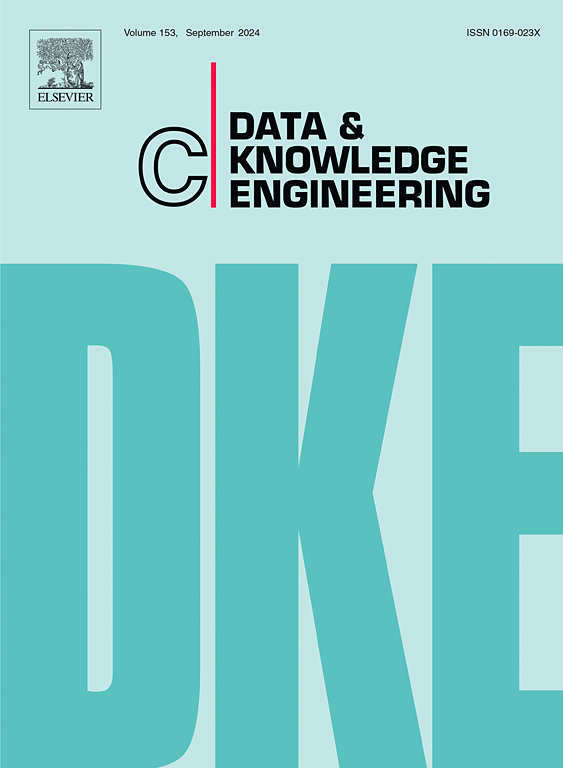Rule-guided process discovery
IF 2.7
3区 计算机科学
Q3 COMPUTER SCIENCE, ARTIFICIAL INTELLIGENCE
引用次数: 0
Abstract
Event data extracted from information systems serves as the foundation for process mining, enabling the extraction of insights and identification of improvements. Process discovery focuses on deriving descriptive process models from event logs, which form the basis for conformance checking, performance analysis, and other applications. Traditional process discovery techniques predominantly rely on event logs, often overlooking supplementary information such as domain knowledge and process rules. These rules, which define relationships between activities, can be obtained through automated techniques like declarative process discovery or provided by domain experts based on process specifications. When used as an additional input alongside event logs, such rules have significant potential to guide process discovery. However, leveraging rules to discover high-quality imperative process models, such as BPMN models and Petri nets, remains an underexplored area in the literature. To address this gap, we propose an enhanced framework, IMr, which integrates discovered or user-defined rules into the process discovery workflow via a novel recursive approach. The IMr framework employs a divide-and-conquer strategy, using rules to guide the selection of process structures at each recursion step in combination with the input event log. We evaluate our approach on several real-world event logs and demonstrate that the discovered models better align with the provided rules without compromising their conformance to the event log. Additionally, we show that high-quality rules can improve model quality across well-known conformance metrics. This work highlights the importance of integrating domain knowledge into process discovery, enhancing the quality, interpretability, and applicability of the resulting process models.
规则引导的流程发现
从信息系统中提取的事件数据可作为流程挖掘的基础,从而能够提取见解并识别改进。流程发现侧重于从事件日志中派生描述性流程模型,事件日志构成了一致性检查、性能分析和其他应用程序的基础。传统的过程发现技术主要依赖于事件日志,常常忽略了补充信息,如领域知识和过程规则。这些规则定义了活动之间的关系,可以通过诸如声明性流程发现之类的自动化技术获得,也可以由领域专家根据流程规范提供。当作为事件日志旁边的附加输入使用时,此类规则具有指导流程发现的巨大潜力。然而,利用规则来发现高质量的命令式过程模型,如BPMN模型和Petri网,在文献中仍然是一个未被充分探索的领域。为了解决这一差距,我们提出了一个增强的框架IMr,它通过一种新的递归方法将发现的或用户定义的规则集成到流程发现工作流中。IMr框架采用分而治之的策略,结合输入事件日志,在每个递归步骤中使用规则指导流程结构的选择。我们在几个真实的事件日志上评估了我们的方法,并证明发现的模型更好地与提供的规则保持一致,而不会影响它们与事件日志的一致性。此外,我们还展示了高质量的规则可以提高众所周知的一致性度量的模型质量。这项工作强调了将领域知识集成到过程发现、提高结果过程模型的质量、可解释性和适用性的重要性。
本文章由计算机程序翻译,如有差异,请以英文原文为准。
求助全文
约1分钟内获得全文
求助全文
来源期刊

Data & Knowledge Engineering
工程技术-计算机:人工智能
CiteScore
5.00
自引率
0.00%
发文量
66
审稿时长
6 months
期刊介绍:
Data & Knowledge Engineering (DKE) stimulates the exchange of ideas and interaction between these two related fields of interest. DKE reaches a world-wide audience of researchers, designers, managers and users. The major aim of the journal is to identify, investigate and analyze the underlying principles in the design and effective use of these systems.
 求助内容:
求助内容: 应助结果提醒方式:
应助结果提醒方式:


